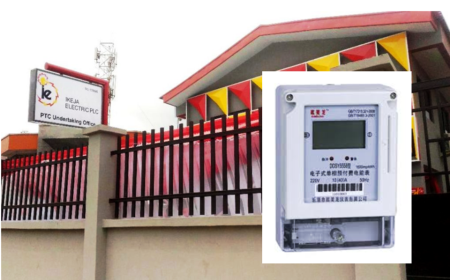Assessment of Nigeria’s Agricultural Sector Under President Tinubu’s Administration
President Bola Tinubu’s second year in office has presented a mixed bag for Nigeria’s agricultural sector, a cornerstone of his Renewed Hope Agenda. Under the stewardship of Minister Abubakar Kyari, the Ministry of Agriculture and Food Security has implemented several initiatives aimed at boosting agricultural productivity, ensuring food security, and stimulating rural development. These efforts have yielded some positive outcomes, but significant challenges remain, hindering the sector’s full potential and threatening the nation’s food security.
Achievements and Positive Interventions
The Ministry, under Kyari’s leadership, has injected substantial financial resources into the agricultural sector, totaling approximately N309 billion. This investment has supported various interventions, including input supply, farm mechanization, livestock health, and farmer training, leading to the creation of over 60,000 jobs, primarily in rural communities. The Dry Season Farming Initiative, a key program, has expanded cultivation to 500,000 hectares, including significant wheat production across 15 states. This has contributed to national food sufficiency and promoted year-round farming. The distribution of 2.15 million free fertilizer bags to farmers, in partnership with the Central Bank of Nigeria, has also provided crucial support to smallholder farmers amidst economic volatility. Furthermore, over 14 million doses of livestock vaccines have been administered, and modern animal health clinics established, improving livestock health and resilience.
The Ministry has also emphasized climate-smart agriculture, focusing on the development of drought-resistant, heat-tolerant, and high-yielding seeds. Partnerships with research institutions have been strengthened to ensure that scientific advancements and new technologies reach Nigerian farmers. Extension services have been revitalized to educate farmers on improved practices for irrigation, pest control, and sustainable land use. Infrastructure development has also been prioritized, with the construction of rural roads and the installation of solar-powered boreholes and streetlights in farming communities, improving both agricultural operations and living conditions. Over 20,000 farmers have received training in agribusiness, financial literacy, and productivity-enhancing techniques, focusing on youth and women empowerment. The inauguration of the Agricultural Sector Working Group, a multi-stakeholder platform, aims to align agricultural development goals with national policies on food security and economic diversification. The introduction of agricultural insurance schemes and weather information services provides safety nets for farmers against climate inconsistency and market volatility.
Persistent Challenges and Concerns
Despite these positive developments, the agricultural sector continues to grapple with significant challenges that undermine its progress and threaten food security. Food inflation remains alarmingly high, exceeding 40% year-on-year, making staple foods unaffordable for millions of Nigerians. Insecurity, including banditry, kidnapping, and communal conflicts, disrupts farming activities, displaces communities, and discourages investment. Food smuggling across borders drains local supply chains and distorts market dynamics. Poor rural road networks and inadequate logistics systems hinder the efficient movement of produce from farms to markets, leading to post-harvest losses.
A major administrative bottleneck is the corrupt and manipulated farmers’ database, which hinders the effective distribution of government support and agricultural interventions. Subsidized inputs often fail to reach genuine farmers, undermining the goals of national food security and agricultural development. Post-harvest losses, estimated at up to 40%, further exacerbate the food crisis due to poor storage facilities, lack of preservation technology, and insufficient transport infrastructure. Climate change continues to pose a serious threat, with flooding, erratic rainfall, prolonged droughts, and changing weather patterns disrupting agricultural productivity and causing crop losses. While the government has introduced measures like dry-season farming and seed improvement initiatives, implementation remains limited in scale and often delayed.
Expert Perspectives and Recommendations
Experts like Peter Dama, Chairman of the Competitive African Rice Forum, Nigeria, acknowledge the government’s initiatives but emphasize the need for effective implementation. While recognizing efforts in mechanization, input distribution, and the establishment of Special Agro-Industrial Processing Zones, Dama stresses the importance of translating plans into concrete action on the ground. He also highlights the detrimental impact of insecurity, economic policies like fuel subsidy removal and import duty waivers, and rising electricity tariffs on farmers and local production. Dama criticizes the government’s decision to allow large-scale food importation, arguing that it undermines local farmers and exacerbates food insecurity.
Abubakar Kassim, President of the Fertiliser Producers and Suppliers Association of Nigeria, acknowledges the painful challenges posed by policy decisions like fuel subsidy removal, which has increased production and transportation costs for farmers. While praising the government’s declaration of a state of emergency on food security and subsequent actions like securing fertilizer and engaging in foreign partnerships, Kassim expresses concern about the economic constraints faced by the administration and the impact of global supply dynamics on local farmers. He highlights the need for stronger support for local farmers, including measures to reduce production costs, and emphasizes the crucial role of infrastructure development, especially in irrigation, to enhance agricultural productivity and reduce reliance on rain-fed agriculture.
Moving Forward: Key Priorities and Recommendations
Moving forward, the Nigerian government must prioritize addressing the critical challenges hindering the agricultural sector’s growth and achieving food security. This requires a multi-pronged approach focused on the following key areas:
-
Enhancing Security: Addressing insecurity is paramount. This requires a comprehensive strategy involving law enforcement, community engagement, and conflict resolution mechanisms to create a safe and stable environment for farmers.
-
Improving Infrastructure: Investing in rural infrastructure, particularly road networks, storage facilities, and irrigation systems, is essential to facilitate efficient transportation, reduce post-harvest losses, and enhance agricultural productivity.
-
Strengthening Support for Farmers: Providing targeted support to farmers, including access to affordable inputs, credit facilities, and technical training, is crucial to empower them and increase productivity. Streamlining the distribution of subsidized inputs and ensuring they reach genuine farmers is also essential.
-
Addressing Climate Change: Promoting climate-smart agricultural practices, including drought-resistant crops and efficient irrigation techniques, is vital to mitigate the impact of climate change on agricultural production.
-
Reforming Agricultural Policies: Revisiting and refining existing agricultural policies, particularly those related to import duty waivers and fuel subsidies, is necessary to create a level playing field for local farmers and encourage domestic production.
-
Improving Data Management: Cleaning up the farmers’ database and implementing a robust data management system is crucial for efficient targeting of government interventions and ensuring accountability.
-
Promoting Value Chain Development: Supporting the development of agricultural value chains through initiatives like the Special Agro-Industrial Processing Zones can enhance processing and marketing of agricultural products, creating more value and income for farmers.
- Fostering Public-Private Partnerships: Leveraging public-private partnerships can attract investment, expertise, and technology to the agricultural sector, driving innovation and growth.
By implementing these measures, the Nigerian government can unlock the vast potential of its agricultural sector, ensuring food security, creating jobs, and driving sustainable economic development. It is crucial to move beyond policy pronouncements to concrete action on the ground, ensuring that the benefits of government interventions reach the intended beneficiaries and translate into tangible improvements in the lives of Nigerian farmers and consumers.














